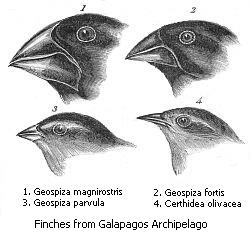"Many administrators, private and public, have decided that the future of plant breeding lies in genomics, relying on claims that molecular genetics has revolutionized the time frame for product development. ‘Seldom has it been pointed out that it is going to take as long to breed a molecular engineering gene into a successful cultivar as it takes for a natural gene’" - Goodman 2002
Showing posts with label science. Show all posts
Showing posts with label science. Show all posts
Thursday, October 13, 2011
Genetic Engineering vs. Breeding
Tuesday, October 4, 2011
openSNP and Personal Genomics
Wednesday, April 27, 2011
Wednesday Links
- Man, oh man. Possibly the coolest website ever and more chemical ecology than I know what to do with (and here's another). h/t OrchidGrownMan from Biofortified
- Open source Legos for grownups. Can I have a microtractor? or a microcombine? or a dimensional sawmill? Pleeeease?
- More scientific sour grapes. Why won't grad students sacrifice their entire careers to do what we think is important?
- And, as always, maps! This time, watch agriculture spread. h/t Seed.Feed.Food
Friday, February 11, 2011
Data Visualization a Gateway to Statistics?
Yes! Personally, I'm a big fan of data visualization as a way of mining complex information. Pictures of data tend to contain more information than text summaries and also make associations much easier to recognize. Humans may be much less unbiased and logical than we like to think, but we're awesome pattern-detecting machines (whether there's something there or not).
Wednesday, February 9, 2011
Is Science Getting Harder (or just more social)?
A recent blog post over at the WSG asks if it's getting harder to discover new things:
"If you look back on history, you get the sense that scientific discovery used to be easy. Galileo rolled objects down slopes. Robert Hooke played with a spring to learn about elasticity; Isaac Newton poked around his own eye with a darning needle to understand color perception. It took creativity and knowledge to ask the right questions, but the experiments themselves could be almost trivial. Today, if you want to make a discovery in physics, it helps to be part of a 10,000 member team that runs a multibillion dollar atom smasher. It takes ever more money, more effort, and more people to find out new things."
Subscribe to:
Posts (Atom)





